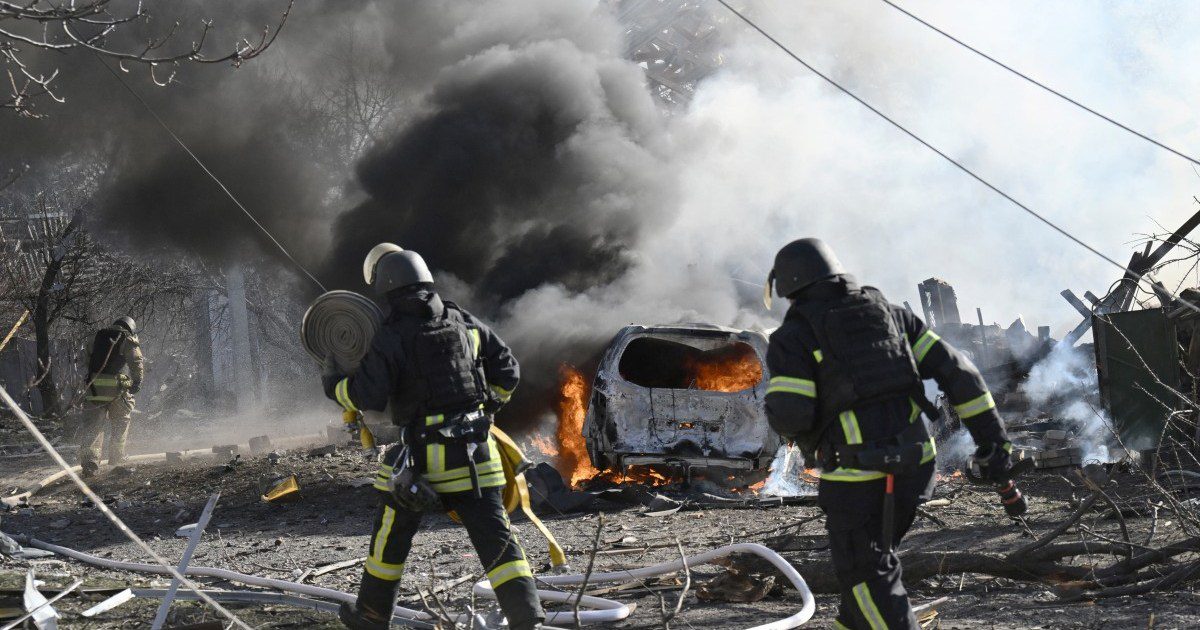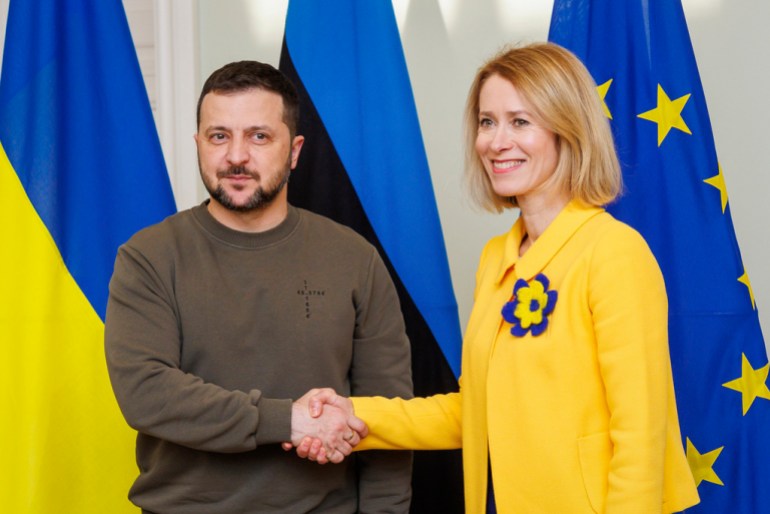
This week, delegates from the United States and Russia are scheduled to meet in Saudi Arabia to discuss potential measures for resolving the ongoing conflict in Ukraine. This development has raised alarms among European leaders, who feel excluded from the U.S. diplomatic efforts in these negotiations.
On Monday, senior officials from the U.S. and Russia will arrive in Saudi Arabia, as confirmed by the U.S. State Department and the Kremlin. The following day, the discussions in Riyadh will aim to pave the way for future talks aimed at reaching peace.
According to Kremlin spokesperson Dmitry Peskov, Russian Foreign Minister Sergey Lavrov and Foreign Policy Advisor Yuri Ushakov will represent Russia in these talks.
The U.S. delegation will include Secretary of State Marco Rubio, National Security Advisor Mike Waltz, and Special Envoy to the Middle East Steve Witkoff, as announced by the State Department.
These confirmations come shortly after U.S. President Donald Trump revealed that he and President Putin had agreed during a recent phone call to initiate negotiations to halt the conflict, raising concerns about the implications for Ukraine and its European allies.
Trump’s statement has sparked worries that he may concede too much to Russia, potentially undermining the security framework in Europe and the established U.S.-Europe defense partnership.
Peskov noted that the forthcoming meeting in Saudi Arabia will focus on “potential negotiations for resolving the situation in Ukraine,” as well as orchestrating a summit between the two presidents.
Amid speculation that Trump might meet with Putin in Saudi Arabia, the former U.S. president indicated over the weekend that such a meeting could take place “very soon.”

According to a report from Reuters, cited by Peskov, the Tuesday discussions will center on “restoring the full spectrum of Russian-American relations.”
Additionally, Kirill Dmitriev, head of Russia’s sovereign wealth fund, is expected to participate in the discussions.
U.S. Secretary of State Rubio stated that the upcoming meeting aims to foster broader conversations that include Ukraine and strive for an end to the war. He emphasized that achieving peace is a process that cannot be completed in a single meeting.
In a distinct stance, Ukrainian President Volodymyr Zelenskyy declared that Ukraine would not participate in the talks in Saudi Arabia nor endorse any agreements made without its presence. However, he plans to travel to Saudi Arabia separately on Wednesday to seek updates from Crown Prince Mohammed bin Salman regarding the discussions.
Turkish officials also confirmed that Zelenskyy will be visiting Turkey on Tuesday at the invitation of President Recep Tayyip Erdogan.
In a statement made on X, Turkish government spokesperson Fahrettin Altun mentioned that Zelenskyy and Erdogan would address ways to enhance cooperation, bilateral relations, and discuss current developments in Ukraine alongside regional and global issues.
Reporting from Kyiv, Al Jazeera’s Charles Stratford noted that there are “significant concerns” among the Ukrainian leadership about being marginalized in these discussions.
“There’s an emerging awareness that the landscape has shifted, and returning to Ukraine’s pre-war borders might no longer be feasible,” Stratford commented.
Alert Among European Leaders
Simultaneously, European leaders are convening in Paris to strategize their response to a surprising shift in U.S. policy concerning Ukraine, which has seen Kyiv and its European partners sidelined.
EU President Ursula von der Leyen highlighted that Europe’s security is at a “critical juncture.” She stressed, “This situation pertains not only to Ukraine but to our own security as well. We must adopt an urgent mindset, fortify our defenses, and do so without delay.”
Polish Prime Minister Donald Tusk expressed his intent to push for immediate enhancements to Europe’s defense capabilities, warning that they currently lag behind Russia’s.
“We cannot effectively assist Ukraine without promptly addressing our own defense needs,” Tusk remarked to reporters before his flight to Paris. “If Europe fails to counter Russia’s military strength today, we must act quickly.”
Trump has stated his intention to engage directly with Putin about “peace in Ukraine,” yet U.S. officials confirmed over the weekend that they do not foresee European involvement.
Al Jazeera’s Natacha Butler, reporting from the French capital, noted that there is a palpable sense of urgency among European leaders gathered in Paris.
“It has become evident that the transatlantic partnership is significantly weakened,” Butler said. “European leaders are concerned that any agreements made between Trump and Putin could have serious consequences for the future of Europe’s security.”

Peskov indicated that Russia is content with Trump’s stance, suggesting that discussions about European involvement in negotiations regarding Ukraine’s resolution are premature.
Lavrov also stated he found no necessity for European participation in ceasefire discussions, accusing them of desiring to “perpetuate the conflict” in Ukraine.
“I’m unsure what role they would play at the negotiating table,” he commented at a press conference in Moscow. “If their intention is to perpetuate the war, then why invite them?”
Prior to the summit in France, Spain’s Foreign Minister Jose Manuel Albares remarked that European leaders need to consider ways to prevent any peace negotiations from rewarding Russian aggression.
“A war of aggression should not be incentivized. We cannot promote such behavior,” he stated in an interview with Onda Cero radio. “I am currently convinced that Putin will persist in his attacks on Ukraine, making immediate peace unlikely.”
The European Union’s High Representative for Foreign Affairs, Kaja Kallas, recently warned Trump about pursuing any agreements without Ukraine or Europe’s knowledge, accusing him of “appeasement.”









